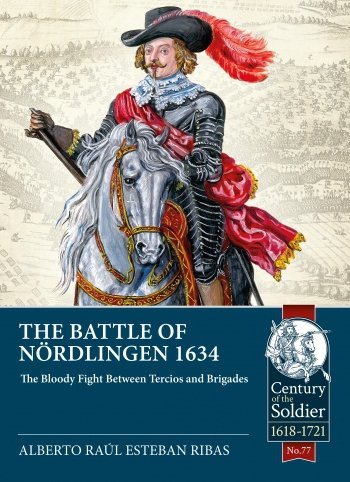-
Załączniki bezpieczeństwa
Załczniki do produktuZałączniki dotyczące bezpieczeństwa produktu zawierają informacje o opakowaniu produktu i mogą dostarczać kluczowych informacji dotyczących bezpieczeństwa konkretnego produktu
-
Informacje o producencie
Informacje o producencieInformacje dotyczące produktu obejmują adres i powiązane dane producenta produktu.HELION
-
Osoba odpowiedzialna w UE
Osoba odpowiedzialna w UEPodmiot gospodarczy z siedzibą w UE zapewniający zgodność produktu z wymaganymi przepisami.
In 1634 the Thirty Years' War had taken a spectacular turn. The great protagonists of 1630, King Gustav II Adolf of Sweden and Generals Tilly and Wallenstein were dead.
The Swedish army was disoriented without the presence of its charismatic king. Chancellor Oxenstierna was to preserve his legacy, so the Heilbronn League was formed by various Protestant states in western and northern Germany, with the French providing financial support.
With the League, the Swedish and Protestant Germans were able to launch various offensives throughout Germany, almost leading to the collapse of the Imperial forces, which were reorganising after the tremors caused by the murder of Wallenstein. Ferdinand, King of Hungary and heir to the Holy Roman Empire assumed command of the armies in the West and thus enhance his leadership.
Cardinal-Infante Fernando had been appointed governor of Flanders. The sea voyage from Spain to Flanders was hazardous, threatened by storms, the English, the French, and the Dutch. It was much safer to travel from Italy and journey more than 1,000 kilometres along the so-called Spanish Road. But this route, which partly followed the course of the River Rhine, was now on the front lines of the Thirty Years' War. Prince Fernando could not travel alone, so an army of 10,000 soldiers was formed to escort him to Flanders and fight against the army of the United Provinces.
Ferdinand asked the Cardinal-Infante to help him capture a small town, called Nördlingen, and together they could fight the Swedish-German army, commanded by Generals Gustav Horn and Bernard of Saxe-Weimar.
This book explains the general situation in Germany during the Thirty Years' War in the period 1633-1634. It describes in detail the tactics, armament and units of the Spanish, Swedish and Imperial armies. It analyses the conflicting interests of the various powers fighting the war.
The objective of the text is to explain the battle that took place on the plain of Nördlingen, the various protagonists who commanded the Tercios and Regiments that fought there, and to analyse the mistakes and successes of the generals. As part of this assessment, the stereotypes about the Spanish and Swedish tactical models are reviewed, which for a long time were the paradigm of tactics in European warfare. In this way the books seeks to answer the question, who had the superior organisation, deployment and tactics? The Swedish Brigade or the Spanish Tercio?
Front cover shows the Cardinale Infante on the field at Nördlingen, painted by Serge Shemenkov.








